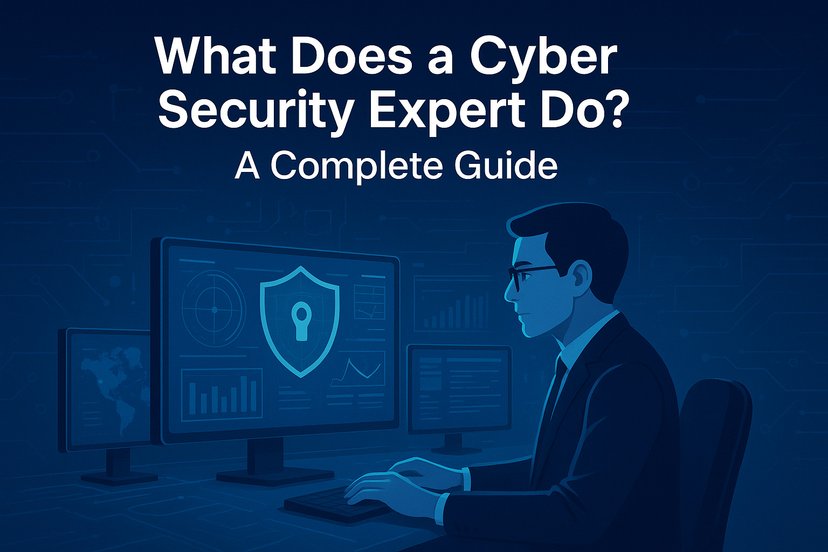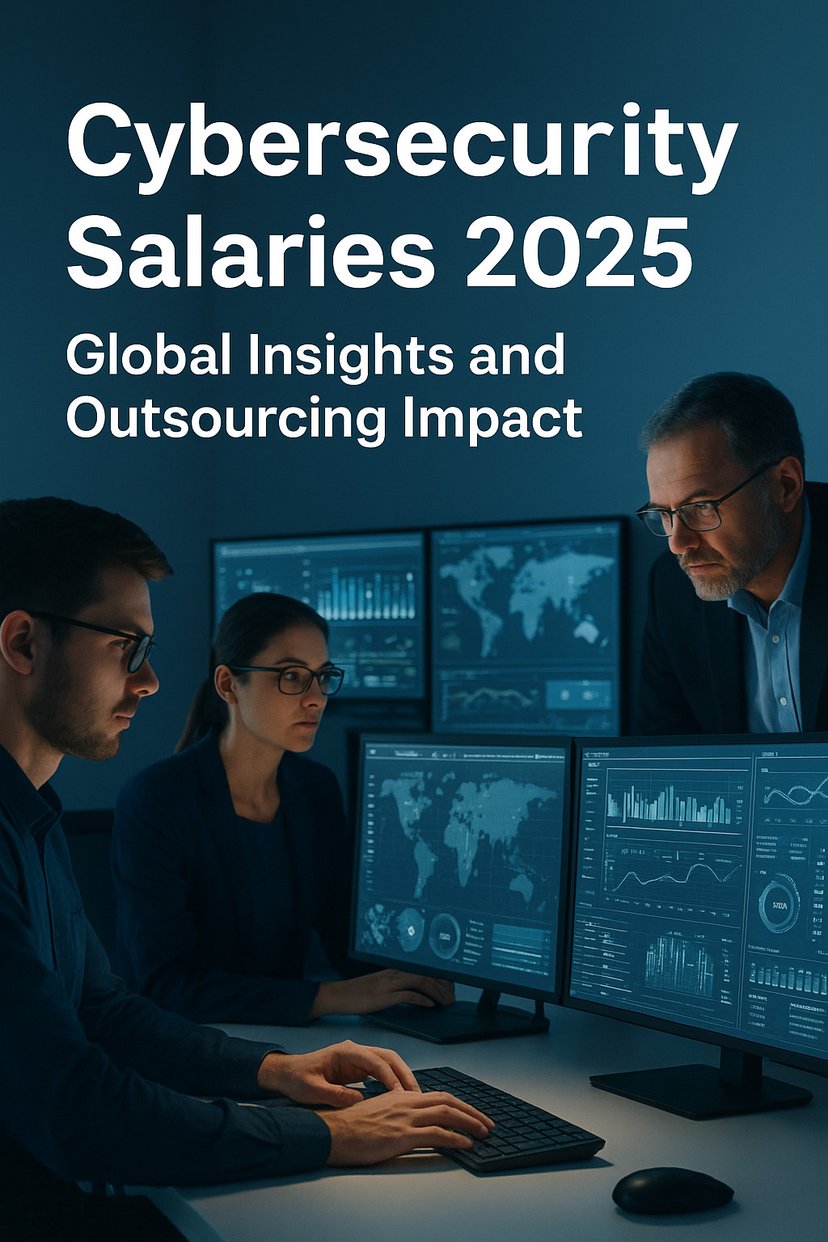What to Look for When Hiring a Cyber Security Expert
- 1 min read
Discover key skills, certifications, and traits to look for when hiring a cybersecurity expert. Ensure your organization’s data and infrastructure remain fully protected.

Introduction
In a digital-first world, cybersecurity is no longer a technical afterthought—it’s a business necessity. With data breaches and ransomware attacks on the rise, companies must carefully evaluate who they bring in to safeguard their digital assets.
At Euro IT Sourcing, we help organizations build resilient cybersecurity teams by connecting them with vetted experts across Europe. This article explains what you should look for when hiring a cybersecurity professional, how to assess their capabilities, and why structured recruitment ensures long-term protection and compliance.
Core Competencies to Prioritize
1. Proven Technical Expertise
A skilled cybersecurity professional must demonstrate hands-on experience with:
- Network and endpoint protection tools (firewalls, IDS/IPS, antivirus systems)
- Cloud security and encryption technologies
- Threat intelligence and incident response
- Security Information and Event Management (SIEM) systems
The National Institute of Standards and Technology (NIST) emphasizes the importance of aligning technical expertise with risk-based frameworks such as the NIST Cybersecurity Framework.

2. Certifications That Matter
While experience is essential, certifications validate a candidate’s technical competence. Commonly recognized ones include:
- CISSP (Certified Information Systems Security Professional)
- CEH (Certified Ethical Hacker)
- CompTIA Security+
- CISM (Certified Information Security Manager)
- ISO/IEC 27001 Lead Implementer
According to ISO, certified professionals are more likely to apply standardized approaches to risk assessment and mitigation, which improves long-term security maturity. Learn more from ISO.
3. Strong Understanding of Compliance and Regulations
An effective expert must know how to comply with global standards such as:
- GDPR (for data privacy in the EU)
- NIS2 Directive (network and information systems security)
- SOC 2 and ISO 27001 (data management and security frameworks)
These ensure that the organization not only protects data but also meets legal and industry requirements.
4. Analytical and Communication Skills
Cybersecurity isn’t just technical—it’s also strategic. The ability to analyze, communicate, and prioritize threats is crucial. Look for candidates who can translate complex security risks into clear business recommendations for non-technical stakeholders.
5. Ethical Mindset and Continuous Learning
A trustworthy cybersecurity expert stays updated on the latest threats, exploits, and regulatory changes. Ethical integrity is key—especially for roles involving sensitive access and data handling.
The OWASP Foundation advocates for continuous learning and community engagement as vital parts of professional security practice. Explore OWASP guidelines.
How Euro IT Sourcing Ensures Cyber Talent Quality
At Euro IT Sourcing, we apply a rigorous selection process that includes:
- Technical screening via real-world simulations and vulnerability assessments.
- Soft skill evaluation to ensure effective communication and collaboration.
- Compliance verification with GDPR and ISO standards.
- Background and credential checks to verify authenticity and integrity.
This structured vetting process ensures our clients receive security professionals who can handle modern challenges with precision and reliability.
Metrics & Outcomes
Organizations that hire through a structured cybersecurity recruitment process typically achieve:
- 40% faster incident response times
- 50% reduction in security-related downtime
- Zero compliance penalties due to stronger governance
- Improved internal awareness through training and proactive monitoring
According to Gartner, companies with skilled cybersecurity teams recover from security incidents up to 3x faster than those with reactive approaches. See Gartner’s cybersecurity insights.
Risks → Mitigations
- Risk → Mitigation: Hiring based solely on certifications → Conduct technical assessments and scenario-based testing.
- Risk → Mitigation: Ignoring soft skills → Evaluate communication and reporting capabilities.
- Risk → Mitigation: Lack of compliance knowledge → Require familiarity with GDPR, NIS2, and ISO frameworks.
- Risk → Mitigation: Outdated skills → Prioritize candidates engaged in continuous learning or security communities.
Key Takeaways
- Look for a balanced mix of technical, analytical, and communication skills.
- Certifications like CISSP, CEH, and ISO 27001 demonstrate proven capability.
- A security expert should be compliance-aware and ethically grounded.
- Structured hiring through Euro IT Sourcing ensures skill, trust, and alignment with modern frameworks.
- Continuous improvement and learning are essential in this fast-evolving field.
Author: Matt Borekci
Contact Us: Euro IT Sourcing

What Does a Cyber Security Expert Do? A Complete Guide
Discover what a cyber security expert does, their roles, skills, and how they protect businesses from digital threats.

How Much Does a Cyber Security Expert Earn? Salary Insights for 2025
Explore 2025 cybersecurity salary trends, including global averages, roles in demand, and how outsourcing impacts IT security hiring.